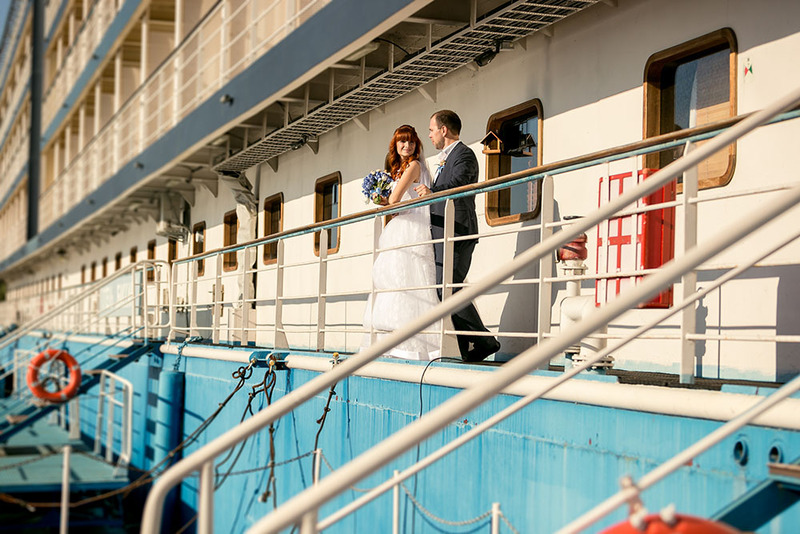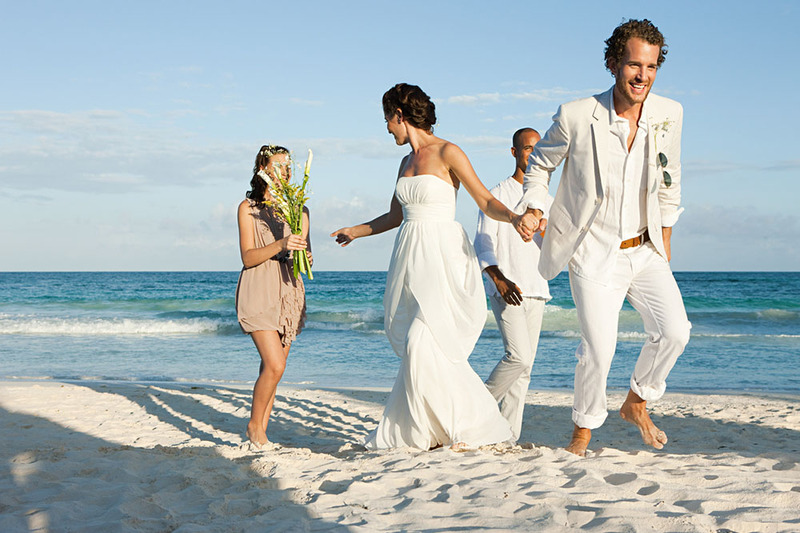AMERICAN WEDDINGS BLOG
Stay up to date with the latest wedding ceremony trends, script writing inspiration, tips and advice for first-time officiants, and news that matters to couples and wedding ministers.
Stay up to date with the latest wedding ceremony trends, script writing inspiration, tips and advice for first-time officiants, and news that matters to couples and wedding ministers.
Published Monday, Nov. 19th, 2018
Last updated Monday, Oct. 20th, 2025

Despite the many wedding trends that come and go, destination weddings and cruise ship weddings will always appeal to couples planning their nuptials.
It might have been half a century since Hawaii weddings first became popular, but many couples still fantasize about having their wedding on a tropical beach, somewhere far away, toes in the sand, with a balmy breeze carrying their vows to one another above the sound of gentle, rolling waves… with a friend or family member standing before them to officiate their perfect ceremony, of course!
Related: Asking a Friend or Family Member to Officiate Your Wedding? Read This First...
Unfortunately, it’s a bit more complicated than that. After just a bit of research, couples realize how difficult it is to find information on getting married in another country outside of the United States - let alone the legalities regarding their marriage license and making sure their union is recognized after the fact.
We'll explain everything you need to know below!

Cruise weddings: If you're dreaming of a cruise wedding, either aboard the ship or while in port at a beautiful destination along the way, it's important to consider the legal requirements for a wedding abroad. This can be much more complicated that it seems, but there's a simple solution! Keep reading to see what we recommend...
Ask AMM: Can I officiate a wedding abroad, on a cruise ship, or off ship at a destination port?
First and foremost: As an ordained minister with AMM, your ordination is recognized primarily in the United States. It may be possible for you to legally officiate marriage in another country, but the minister registration/ authorization process may be difficult (if not outright impossible). Not all countries provide equal rights to all churches and ministers, and the process to acquire officiant status can be complex and time consuming.
You'll need to contact your destination country's local marriage authorities directly for additional guidance on local minister requirements and how to perform a legally binding ceremony there. If there's a language barrier, be sure to ask for the requirements in writing, and/or ask to speak to someone who speaks English (or another preferred language).
Ultimately, you need to comply with that country's marriage laws. Be prepared: some countries may have strict requirements (training, licensing, resident status, etc.) that you simply cannot meet as an AMM Minister.
Marry in the U.S. with a symbolic second ceremony abroad, or while sailing the high seas.
If the local requirements for ministers are too strict, or marriage license requirements make it too confusing for couples to apply to get married abroad, there's a simple solution: Complete the marriage paperwork at home and hold a symbolic ceremony abroad!
It's quite simple to have the legally binding ceremony occur in the United States, and then have the celebratory (not legally-binding) ceremony in the destination location. (Or just have a cruise honeymoon!)
Furthermore, with a U.S. marriage license, the couple will be spared the hassle of applying for a foreign marriage license and having those records transferred back to the United States. This will mean that the date on the completed and filed wedding certificate will differ from the date of the celebratory ceremony at the destination location – but for most couples, this is a small price to pay to avoid the stress of planning an international ceremony.
More information: How to Get Married in Another Country in a Dreamy Destination Wedding

Many cruise lines offer special cruise weddings and destination wedding packages, including Royal Caribbean Cruises, Carnival Cruise Line, Princess Cruises, and Disney Weddings with Disney Cruise Line. But most of the cruise weddings held on these ships are only symbolic; you'll still need to apply for and complete your marriage paperwork back home in the United States.
As for cruise ship weddings – especially international ones – you will have to contact the cruise line directly and ask about their policy regarding passenger wedding ceremonies. Most major cruise ships only allow symbolic/celebratory (again, not legally-binding) ceremonies on board, and require that the legally binding ceremony take place at the terminal/dock on United States land.
Cruise lines typically have a special department and staff for events like weddings, so a representative should have very clear answers for you. Once you have contacted them and verified their policy regarding weddings and wedding officiants, do not hesitate to reach out to us if you still have additional questions regarding your ordination or ceremony preparation.
Updated August 2024
Read more Destination Wedding Ideas & Inspiration

Get married in the US Virgin Islands: This short guide will help you choose a wedding officiant, apply for your marriage license, and more! Read the full article linked above.
Become a Wedding Officiant with Our Free Online Ordination!